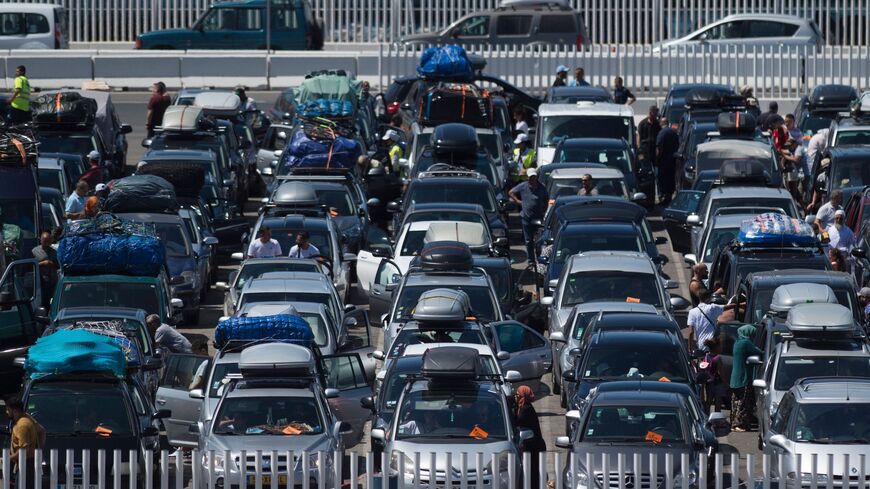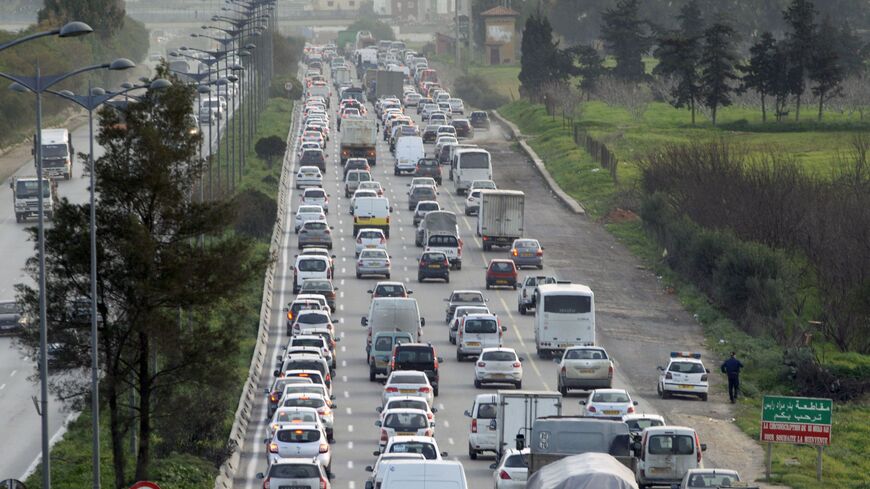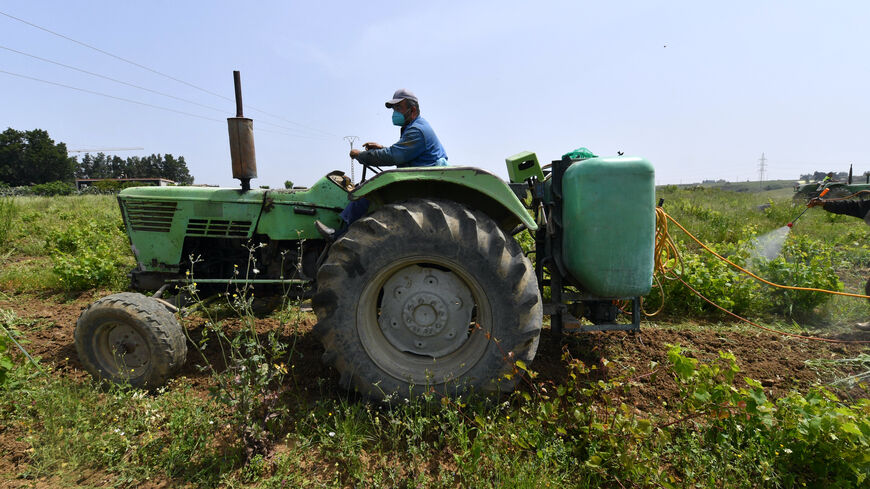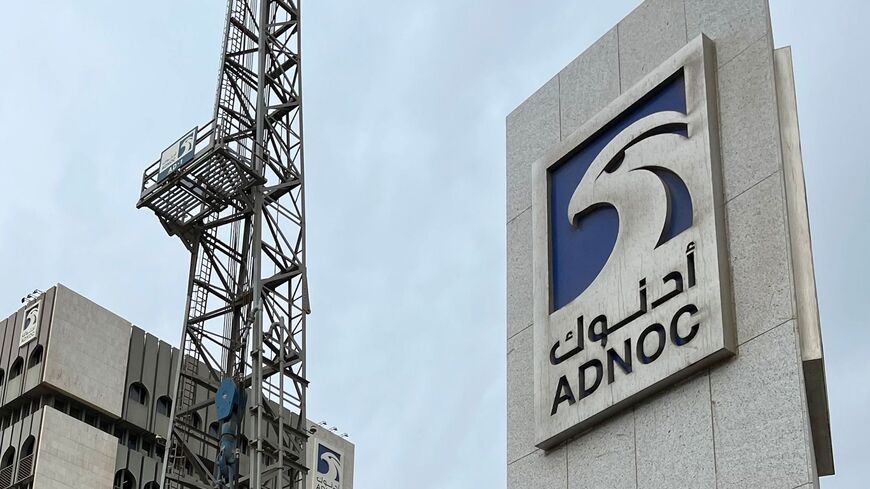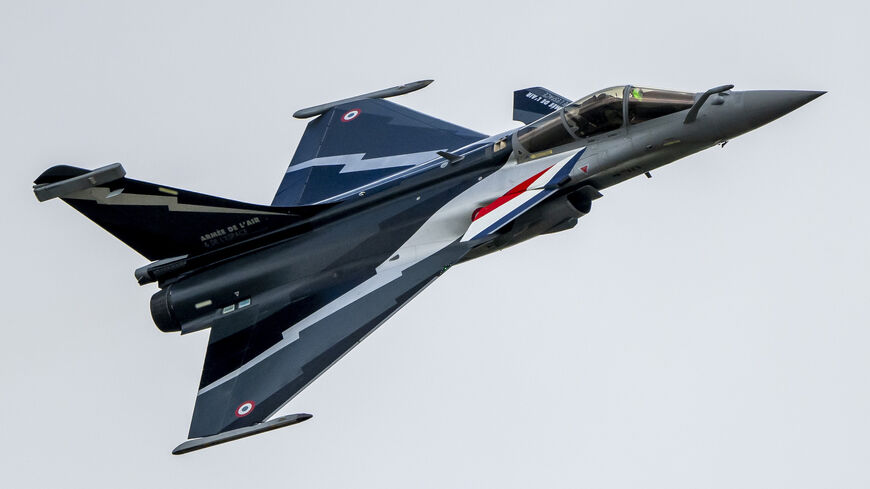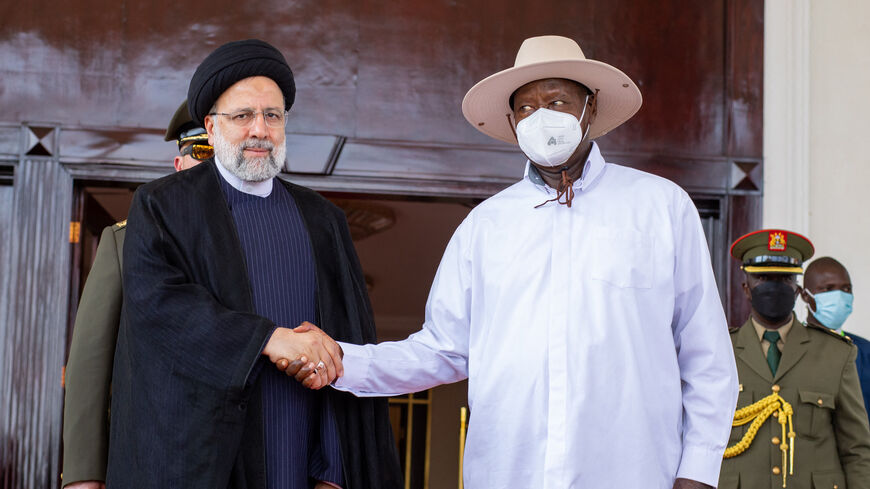Algeria, Sonatrach banking on high energy prices for 2023
Al-Monitor Pro Members
Francisco Serrano
Journalist and analyst specialized in North Africa
Jan. 4, 2023
For Algeria, high energy prices have meant stronger export revenues, an improved budgetary situation, and renewed interest from foreign investors in upstream development. As Europe attempts to diversify away from Russian hydrocarbons, the strategic value of Algerian energy reserves has increased significantly. But Algeria’s production capacity can rise only gradually. Whether the current boom in energy demand will be sufficient to reverse years of under-investment in Algeria’s energy sector remains to be seen.
- Algeria has the world’s tenth largest proven natural gas reserves, and is currently the sixth largest natural gas exporter. Sonatrach, Algeria’s state-owned energy company, has stated that roughly two-thirds of the national territory remains unexplored or underdeveloped for energy resources, with as many as 100 hydrocarbons discoveries undeveloped.
- Despite its hydrocarbons resources — which also include some of largest untapped shale gas reserves in the world – the country’s opaque business environment has often made it difficult to attract new investment into many of its aged oil and gas wells.
- Algeria’s energy export revenues have fluctuated in line with global energy prices. After earning $60 billion in hydrocarbons exports in 2014 — the year that marked the end of the previous oil-price super cycle — Algeria’s earnings collapsed, hitting $30 billion in 2016 and $23.8 billion in 2020.
- The approval of a new hydrocarbons law in 2020 — which simplified license procedures and lowered taxes for foreign companies — did little in itself to drive in new investment. But the rise in global energy prices and the willingness of Western countries to isolate Russia following its invasion of Ukraine has changed everything. European countries have spent most of 2022 looking for alternative gas supplies.
Higher energy export revenues
- Energy prices started to rise again in late 2021, and were driven into volatile terrain as Russia launched its invasion of Ukraine in February of 2022. After earning $34.5 billion in energy exports in 2021, Algeria expects revenues to surpass the $50 billion mark in 2022.
- High prices, likely to continue as long as there is a conflict raging on in Europe, are channeling large sums of foreign exchange reserves into Algeria’s state coffers. According to the World Bank, over 2016-2021, oil and gas accounted for 19% of Algeria’s gross domestic product (GDP), 93% of its product exports, and 38% of the state’s budget. And this was during a period of mostly low prices.
- Sonatrach has recently renegotiated gas contracts with several European energy companies. Spain, Italy, France and other importers of Algerian gas will pay higher prices and access larger quantities of Algerian gas.
- As of early 2022, Algeria provided Europe with 11% of its total annual natural gas consumption. But its market share of the European gas market is undergoing significant growth.
- In the short-term, stronger energy revenues will allow Algeria’s economy to strengthen its rentier nature, increasing financial resources that can be used to placate social discontent. But, despite the inflow of new financial capacity, past periods of high energy-prices have not led to economic reform or a restructuring of energy activities.
Consequences for upstream activity
- The combination of high energy prices and amplified demand should gradually ramp up production capacity. But given Algeria’s rising domestic consumption, and years of under-investment in its hydrocarbons fields, significantly increasing the volume of gas supplied to European buyers will require more time.
- At the moment, about half of Algeria’s annual gas production — totaling around 102 billion cubic meters according to government figures — stays in the country, with domestic requirements growing by 3% to 4% annually. The rising demand for Algerian gas has led the country to export a record 56 billion cubic meters of natural gas over 2022, compared to 54 billion cubic meters in 2021.
- Italy has been a key beneficiary of rising exports of Algerian gas into Europe. In a series of deals signed over 2022, Algeria agreed to add 4 billion cubic meters of gas deliveries to Italy, in addition to the 21 billion cubic meters of gas that were planned to be delivered over the year.
- More importantly for Algeria’s future status as a key gas supplier, Sonatrach has signed several deals with Italian energy firm ENI to increase exploration and development of new oil and gas fields. These are already having an impact on the ground. In October, Sonatrach announced that two gas fields in the Berkine Sud concession it was developing with ENI had been fast-tracked into production in only six months.
- In June, Sonatrach reported the discovery of an estimated 100 billion cubic metres to 340 billion cubic metres of gas condensate in Hassi R’mel, a region where the company already operates the country’s largest known gas field, the Hassi R’mel field. The state-owned firm was expecting to bring the new discovery into production before the end of 2022. Weeks later, it announced additional oil and gas discoveries in the Illizi Basin, the Berkine North Basin and the Bechar Basin, all in southern Algeria.
- Algeria’s oil firm also signed a $4 billion agreement in July with ENI, US-based Occidental and French TotalEnergies to expand production in two blocs in Berkine, in the country’s south, expected to result in 1 billion of oil equivalent barrels. ENI has also recently acquired British Petroleum’s stakes in two upstream projects in Algeria.
- Algeria mainly exports into Europe using two pipelines. The Transmed pipeline links Algeria to Italy, through Tunisia, and has an annual capacity of 32 billion cubic meters of gas. The Medgaz pipeline takes Algerian gas to Spain. Although it had a capacity of 8 billion cubic meters, expansion work has recently pushed the pipeline’s capacity to 10 billion cubic meters per year as of 2021. Additionally, Algeria has the necessary infrastructure to export liquified natural gas (LNG) by sea.
- With available spare capacity on the Transmed Pipeline, it is likely that Italy will increasingly act as the transport platform for gas sales to the rest of the continent. Algeria recently signed a deal to provide Slovenia with 300 million cubic meters of natural gas annually over 2023-2026.
- The combination of high energy prices and willing foreign partners will galvanize Algeria’s investment plans for its energy sector in the medium-term. In January 2022, before the start of the war in Ukraine, Sonatrach announced it would invest $39 billion over 2022-2026. But with European demand for Algerian gas supercharged by the war, investment going into the development of oil and gas discoveries to bring new production online will increase.
- Recently, Algeria’s president, Abdelmadjid Tebboune, stated that the country’s goal should be to double natural gas exports in 2023. The government has already ordered the Ministry of Energy and Mines to raise production.
- Given the shifts in global energy markets triggered by the war in Ukraine, there will certainly be demand for larger volumes of Algerian natural gas. But it is unlikely that Algeria will be able to increase production and exports as needed at such a rapid pace. How much more gas and oil it can produce, and how fast it can increase output, will depend on how much private investment goes into the industry.
- Still, obstacles for investors will remain. An opaque business environment, coupled with the energy sector’s exposure to political pressure from different politico-military factions, will continue to discourage some investors. As such, global oil prices will have a direct effect on the willingness of other oil majors to develop Algeria’s vast energy reserves
Scenario 1: Energy prices increase further and plateau at $100 per barrel over 2023-2026 due to military escalation in Ukraine and European efforts to isolate Russia economically.
This would increase the willingness of oil majors to look into Algeria’s upstream possibilities, despite the country’s business and security risks. Besides strengthening the ruling regime’s grip on power, sustained high prices improve the viability of new greenfield energy projects in Algeria, and over the coming five years, a handful of significant reserve discoveries are brought into production. Algeria’s gas production capacity doubles before the end of the decade, although oil output remains restricted by overall OPEC+ policy.
Although more acute oil-price instability is certainly a possibility in 2023, it is still unlikely that volatility would sustain oil prices at around $100 per barrel over an extended period.
Scenario 2: Energy prices go down significantly in 2023, triggering a decrease in investment into Algeria’s upstream energy sector.
After the initial flurry of new discoveries and development of new hydrocarbons reserves, interest for the country’s hydrocarbons sector starts to wane by the end of 2023. Algeria still manages to sign additional deals for gas deliveries with other European countries, but these are in the hundreds of additional millions of cubic meters rather than in the billions. Lower than expected revenues force Sonatrach to cut on new exploration and development efforts over 2024-2025. The country is still able to fulfill new gas delivery contracts, and is successful at raising output slightly, but the short-lived period of high prices is not enough to have a transformational impact on Algeria’s upstream sector.
At the moment, this scenario seems improbable. Most price projections see oil prices averaging around $80 over 2023.
Energy prices stabilize around an average $80 per barrel over 2023-2024, before decreasing over subsequent years. New investment flowing into Algeria’s upstream sector allows for a gradual increase in gas output. But this will come primarily from extending the life of existing wells and production areas, rather than from a series of sizeable greenfield oil and gas projects that tap into significant new reserves.
Algerian authorities want to take advantage of a combination of high demand and high prices and bring new output to the market as quickly as possible. As such, most new output added over 2023 will likely come from extending production near existing areas where transport and processing infrastructure is already available. However, a discovery of sizeable new reserves near existing production areas might accelerate output increase beyond current expectations. Although energy companies will continue to face a risky political and security environment in Algeria, the long-term willingness of European countries to freeze economic exchanges with Russia, means that EU countries will continue to buy any additional gas output that Algeria is willing to export, both through existing pipelines, as well as through its LNG capacity. Annual and sustained increases in production push Algerian natural gas output up by a third before the end of the decade.
Francisco Serrano is a writer and analyst who focuses mainly on North Africa. He has been published in several outlets, including Foreign Policy, World Politics Review and the Middle East Institute. His second book, "As Ruínas da Década," about the past decade in the Middle East, was published in March 2022.
We're glad you're interested in this memo.
Memos are one of several features available only to PRO Expert members. Become a member to read the full memos and get access to all exclusive PRO content.

Already a Member? Sign in
The Middle East's Best Newsletters
Join over 50,000 readers who access our journalists dedicated newsletters, covering the top political, security, business and tech issues across the region each week.
Delivered straight to your inbox.
Free
What's included:
Free newsletters available:
- The Takeaway & Week in Review
- Middle East Minute (AM)
- Daily Briefing (PM)
- Business & Tech Briefing
- Security Briefing
- Gulf Briefing
- Israel Briefing
- Palestine Briefing
- Turkey Briefing
- Iraq Briefing
Premium Membership
Join the Middle East's most notable experts for premium memos, trend reports, live video Q&A, and intimate in-person events, each detailing exclusive insights on business and geopolitical trends shaping the region.
$25.00 / month
billed annually
$31.00 / month
billed monthly
What's included:
Memos - premium analytical writing: actionable insights on markets and geopolitics.
Live Video Q&A - Hear from our top journalists and regional experts.
Special Events - Intimate in-person events with business & political VIPs.
Trend Reports - Deep dive analysis on market updates.
We also offer team plans. Please send an email to pro.support@al-monitor.com and we'll onboard your team.
Already a Member? Sign in


